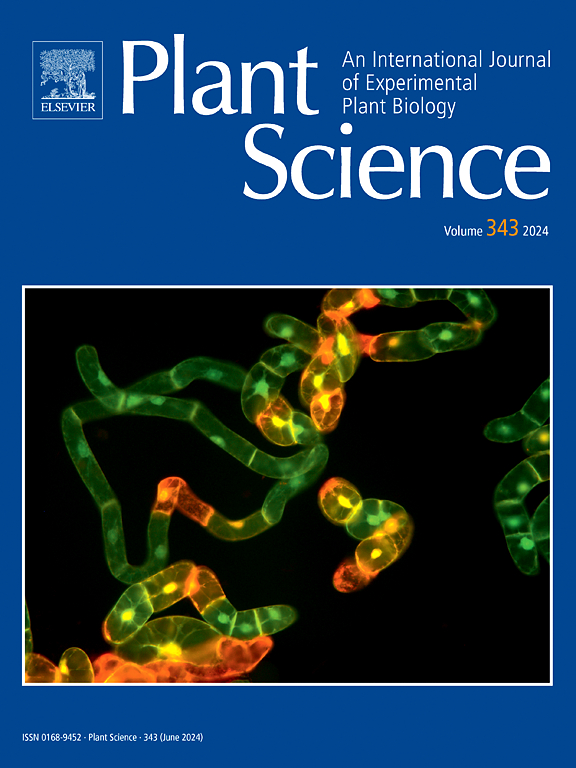Glycosyltransferases: Pioneering roles in agriculture and medicine
IF 4.2
2区 生物学
Q2 BIOCHEMISTRY & MOLECULAR BIOLOGY
引用次数: 0
Abstract
Glycosyltransferases (GTs) belong to a diverse family of enzymes that catalyze the transfer of sugar moieties from activated donor sugars to specific acceptors, thus playing a crucial roles in various biological processes. This review explores the pioneering roles of uridine diphosphate-dependent GTs (UGTs), which use uridine diphosphate glucose as donors. UGTs have also been extensively studied in agricultural and medical fields, emphasizing their potential to revolutionize these sectors. In the agricultural sector, the genetic engineering of UGTs has demonstrate potential in developing crops with enhanced stress tolerance, regulated plant development, and increased resistance to pests and diseases. These advancements not only contribute to sustainable farming practices but also address global food security challenges by facilitating the production of more resilient plant varieties. Furthermore, UGTs facilitate the synthesis of complex carbohydrates and glycoconjugates in plants, which are critical for developing drugs and therapeutic strategies targeting various ailments, including cancer and infectious diseases. Thus, this review explored the functions and synthesis methods of flavonoid glycosides, terpenoid glycosides, and polyketosides in detail. Moreover, owing to the functional diversity of UGTs, numerous research methods were reviewed, and novel, more valuable UGTs will be obtained. In summary, this study synthesizes the current research findings and discusses future perspectives to underscore the transgenic technology and synthetic biological impact of UGTs on agriculture and medicine and bridge the gap between fundamental science and practical applications.
糖基转移酶:在农业和医学中的先锋作用
糖基转移酶(Glycosyltransferases, GTs)属于一个多样化的酶家族,它催化糖部分从活化的供体糖转移到特定的受体,因此在各种生物过程中起着至关重要的作用。这篇综述探讨了尿苷二磷酸依赖性GTs (UGTs)的先驱作用,它使用尿苷二磷酸葡萄糖作为供体。农业和医疗领域也对ugt进行了广泛研究,强调它们有可能彻底改变这些部门。在农业部门,ugt的基因工程在培育抗逆性增强、植物发育受调控和对病虫害抵抗力增强的作物方面显示出潜力。这些进步不仅有助于可持续农业实践,而且还通过促进生产更具抗灾能力的植物品种来应对全球粮食安全挑战。此外,ugt促进植物中复杂碳水化合物和糖缀合物的合成,这对于开发针对各种疾病(包括癌症和传染病)的药物和治疗策略至关重要。为此,本文对黄酮类苷、萜类苷和多酮类苷的功能及合成方法进行了较详细的探讨。此外,由于ugt的功能多样性,对许多研究方法进行了回顾,并将获得新的,更有价值的ugt。综上所述,本研究综合目前的研究成果并探讨未来的发展前景,以突出转基因技术及其对农业和医学的合成生物学影响,弥合基础科学与实际应用之间的差距。
本文章由计算机程序翻译,如有差异,请以英文原文为准。
求助全文
约1分钟内获得全文
求助全文
来源期刊

Plant Science
生物-生化与分子生物学
CiteScore
9.10
自引率
1.90%
发文量
322
审稿时长
33 days
期刊介绍:
Plant Science will publish in the minimum of time, research manuscripts as well as commissioned reviews and commentaries recommended by its referees in all areas of experimental plant biology with emphasis in the broad areas of genomics, proteomics, biochemistry (including enzymology), physiology, cell biology, development, genetics, functional plant breeding, systems biology and the interaction of plants with the environment.
Manuscripts for full consideration should be written concisely and essentially as a final report. The main criterion for publication is that the manuscript must contain original and significant insights that lead to a better understanding of fundamental plant biology. Papers centering on plant cell culture should be of interest to a wide audience and methods employed result in a substantial improvement over existing established techniques and approaches. Methods papers are welcome only when the technique(s) described is novel or provides a major advancement of established protocols.
 求助内容:
求助内容: 应助结果提醒方式:
应助结果提醒方式:


